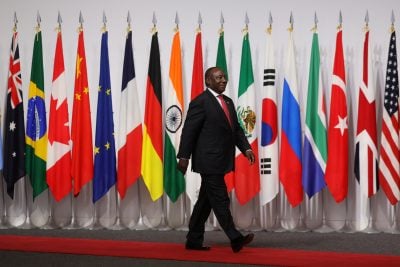President Bola Tinubu has confirmed that Nigeria will reopen its borders with Niger and lift other sanctions on its northern neighbour, less than a year after a military coup made the country a regional pariah.
The confirmation follows the decision of regional bloc the Economic Community of West African States (Ecowas) to lift economic sanctions against Niger’s military government, which overthrew and detained President Mohamed Bazoum on 26 July 2023.
“Today, I have directed the opening of Nigeria’s land and air borders with the Republic of Niger and the lifting of other sanctions against Niger Republic with immediate effect in compliance with the decisions of the ECOWAS Authority of Heads of State and Government at its extraordinary summit on 24 February 2024, in Abuja where we had agreed to lift economic sanctions against the Republic of Niger, Mali, Burkina Faso, and Guinea,” Tinubu wrote.
Coming in from the cold?
Combined with the lifting of financial and economic sanctions against Guinea, whose military seized power in a 2021 coup, the move suggests that Nigeria and Ecowas have abandoned their previous efforts to politically and economically isolate West African military regimes which they previously decried as illegitimate.
Following Niger’s coup, the regional bloc threatened military intervention in the country, and activated a standby force to be used as a last resort if diplomatic efforts failed to resolve the crisis.
But with Bazoum still in detention, and the country led by military ruler General Abdourahamane Tchiani, who last pledged a return to civilian rule within three years in August 2023, Ecowas and Nigeria have changed their approach.
The lifting of the sanctions will see the end of the Ecowas no-fly zone on all commercial flights to and from Niger, the resumption of commercial and financial transactions between Nigeria and Nigeria, and the unfreezing of utility services and electricity to the country.
Assets of Niger, including its state enterprises and parastatals, will be unfrozen in commercial banks and in the central banks of Ecowas member states. Travel bans on government officials and their family members will be repealed.
Prior to the sanctions, Nigeria exported $193m worth of goods to Niger in 2022, according to the UN, including electricity, tobacco and cement, while Niger’s exports to its neighbour amounted to $67.84m in the same year, including cattle, fruit and refined fuel.
Threats to exit
Ecowas’ February decision to roll back sanctions followed soon after coup-hit Niger, Mali and Burkina Faso announced their exit from the bloc in January.
In a joint statement read out on state broadcasters in the three countries, they accused Ecowas of betraying its ideals.
“Under the influence of foreign powers, betraying its founding principles, (Ecowas) has become a threat to member states and peoples,” they argued, adding that the bloc had failed to help them tackle jihadist violence.
By the time of the Ecowas extraordinary summit in February, Tinubu was advocating a different course.
“We must re-examine our current approach to the quest for constitutional order in four of our member states.”
Yet there are few signs of a return to civilian rule in the coup-hit countries. The Malian military delayed presidential elections scheduled for February, citing technical challenges, and Burkina Faso’s military leader Captain Ibrahim Traore, who had previously pledged elections by July 2024, said in September that they would not be a “priority”.
In February, Guinea’s military leaders dissolved the latest government by presidential decree. A 24-month transition period set by the junta and Ecowas to return to civilian rule expires in December.
Want to continue reading? Subscribe today.
You've read all your free articles for this month! Subscribe now to enjoy full access to our content.
Digital Monthly
£8.00 / month
Receive full unlimited access to our articles, opinions, podcasts and more.
Digital Yearly
£70.00 / year
Our best value offer - save £26 and gain access to all of our digital content for an entire year!
 Sign in with Google
Sign in with Google 



